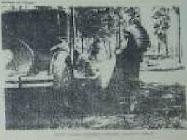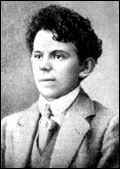Robert A's latest grid over at Samizdat is more interesting (to "the me") than previous schemata. Hinsley's essay sounds good too : I like the idea of revamping the application of the term "doggerel".
However, I think you have to take schemes of general trends, or bracketing of kinds of poetry or qualities of same, with a big grain of salt. Do we really need or want to evaluate poetry, in comparative terms, based solely on specs derived from an ethical-philosophical measure of the status of the self?
How do we determine the mixture of literary guile involved in a poetics of the non-self (say, in various versions of Language- and & other postmodern poetries), which is, nevertheless, an act of assertion rather than one of empathy with an Other? How do we evaluate - except on a case-by-case basis - the ambiguous admixtures of narcissism and detachment, sentiment and irony, which emerge from the practice of writing?
It's possible that a grid of such contraries could help a critic orient him/herself toward a more decisive ethical or critical judgement. But I'm afraid the more likely result is a practice of pigeonholing individual writers; snap judgements; labelling; the formation of spurious & unnecessary lumpings-together : unique poets into handy groups.
Why do we keep circling back, repeatedly over the decades, to these formulae about "the self"? This is a conundrum. Does it have something to do with the difficulty of apprehending and judging sincerity and emotional authenticity through the detached medium of a text? Isn't this the problem with reading in general? Isn't this why authentic poetry exhibits an awareness of emotional/ethical/epistemological complexity, through a comparable rhetorical complexity?
[p.s. even "complexity" has its complexities. A style which comes across as blunt, simple, direct, idiomatic - even vulgar - may be propelled by a very complex and ironic literary strategy. Yesterday's complexity may not be today's.]
12.16.2005
Labels:
complexity,
criticism,
grid,
narcissism,
Robert Archambeau
Subscribe to:
Post Comments (Atom)



No comments:
Post a Comment